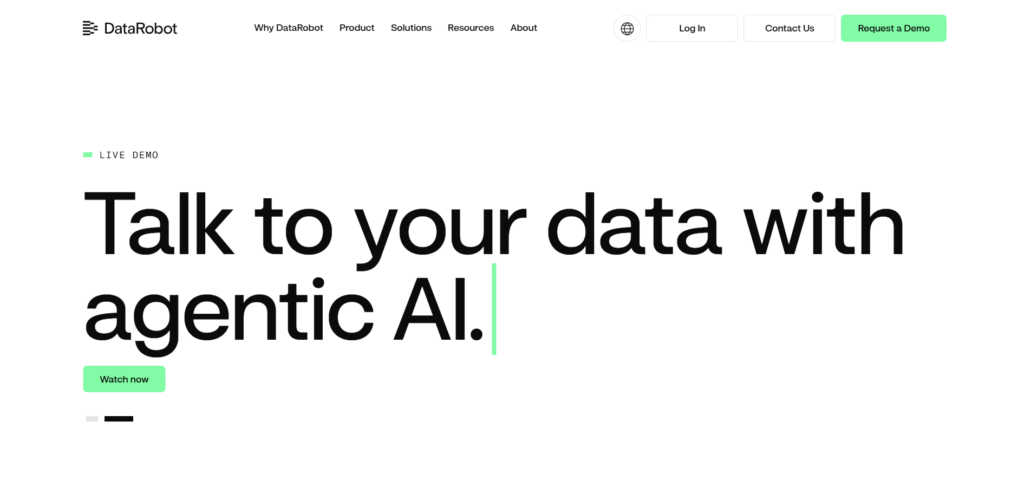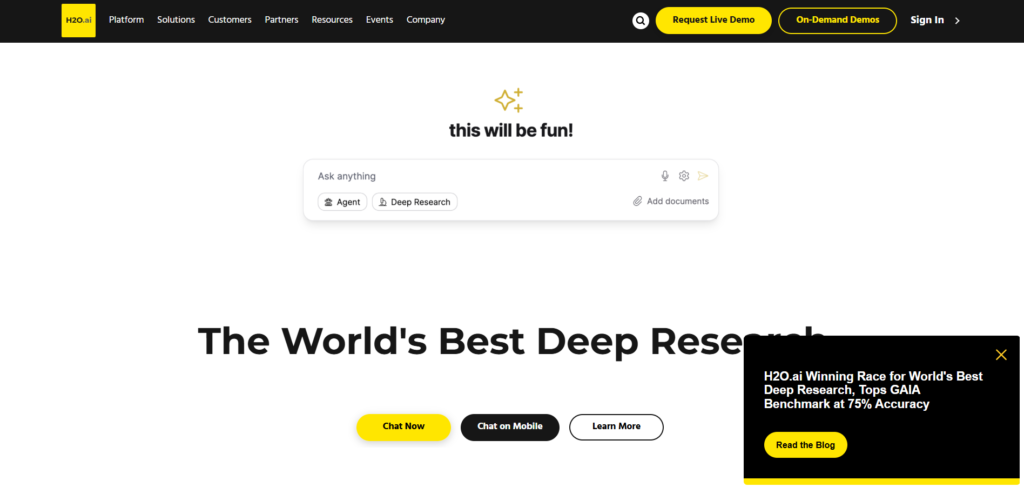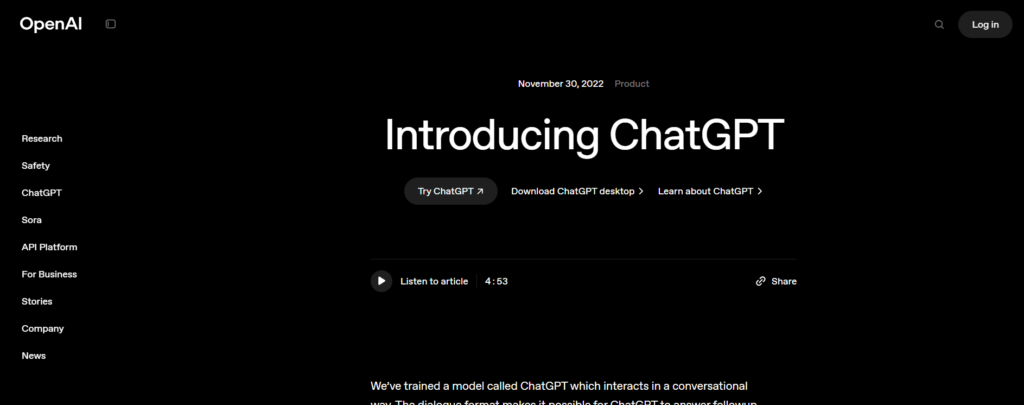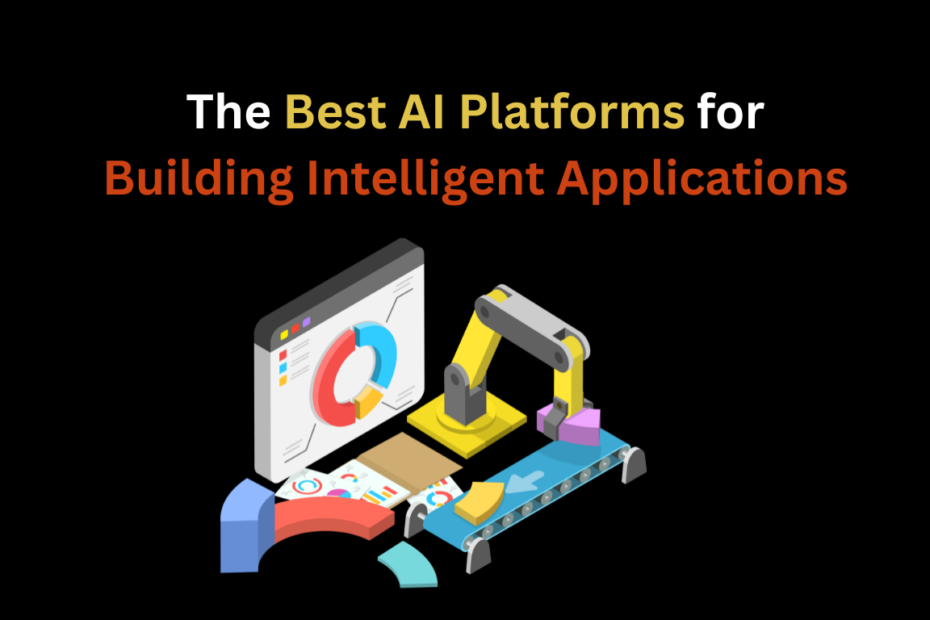In today’s digital world, artificial intelligence (AI) is more than a buzzword—it’s a crucial component of modern software. From chatbots and recommendation engines to fraud detection systems and predictive analytics, AI applications are everywhere. Behind these smart solutions are powerful AI platforms that provide the tools developers and businesses need to create, train, and deploy intelligent applications.
In this blog, we’ll explore some of the best AI platforms available today, how they support the development of AI applications, and which machine learning tools make them stand out.
What Are AI Platforms?
An AI platform is a suite of tools, frameworks, and infrastructure that supports the development, training, testing, and deployment of AI models. These platforms offer end-to-end solutions for building machine learning and deep learning systems. They simplify the process of data collection, model training, and deployment, helping businesses scale AI solutions faster. While these platforms provide the foundation, many businesses require professional machine learning development services to customize these tools for specific industry needs.
Whether you’re a startup or an enterprise, using the right AI platform can save you time, improve accuracy, and streamline your development process—and an AI Ad Generator adds even more value by automating ad creation, optimizing campaigns, and delivering better marketing results with less effort. To get the most out of these tools, it helps to connect technology decisions with your overall business strategy. For teams that are still shaping their direction, working with experts in startup consulting can also help align AI tools with clear business goals and realistic growth plans.
Key Features of AI Platforms
When choosing an AI platform, look for these essential features:
- Pre-built machine learning tools
- Data preprocessing capabilities
- Scalability and cloud integration
- Model training and evaluation tools
- Deployment and monitoring support
- Support for multiple programming languages
- Visualization dashboards
Top AI Platforms for Building Intelligent Applications
1. Google Cloud AI Platform

Google Cloud AI Platform provides a robust environment for training and deploying machine learning models at scale. It integrates seamlessly with TensorFlow and offers tools like AutoML, Vertex AI, and BigQuery ML.
Why it’s great:
- AutoML for building models without code
- Excellent data visualization tools
- Scalable infrastructure
Best for: Enterprises and researchers using Google Cloud and TensorFlow.
2. Amazon SageMaker

Amazon SageMaker is AWS’s fully managed service for building, training, and deploying ML models. It comes with built-in algorithms, notebook instances, and integration with other AWS tools.
Why it’s great:
- One-click training and deployment
- SageMaker Studio for end-to-end ML workflows
- Model monitoring and debugging tools
Best for: Developers and data scientists already using AWS.
3. Microsoft Azure Machine Learning

Azure Machine Learning is a cloud-based environment designed to accelerate ML development. It supports popular ML frameworks like PyTorch, TensorFlow, and scikit-learn. You can also hire Azure developers with experience in cloud environments can help ensure the deployment and management of ML models within Azure Machine Learning run smoothly.
Why it’s great:
- Drag-and-drop ML designer
- AutoML and responsible AI tools
- Excellent security and compliance
Best for: Businesses with Microsoft ecosystem integration.
4. IBM Watson Studio

Watson Studio by IBM enables data scientists and AI developers to collaborate and build AI models quickly. It offers AutoAI, visual modeling, and seamless integration with Watson services.
Why it’s great:
- Powerful automation with AutoAI
- Support for open-source frameworks
- Collaboration-ready workspace
Best for: Enterprises focused on data governance and regulated industries.
5. DataRobot

DataRobot is a user-friendly platform that automates the entire machine learning lifecycle. It’s ideal for non-technical users who want to leverage AI without writing code.
Why it’s great:
- No-code and low-code environment
- Automated model selection and tuning
- Real-time deployment support
Best for: Business analysts and product teams with limited coding experience.
6. H2O.ai

H2O.ai is known for its open-source ML and AI platforms like H2O-3 and Driverless AI. It supports large-scale data analysis and automates machine learning tasks.
Why it’s great:
- Open-source and flexible
- Supports deep learning and NLP
- Fast and scalable model training
Best for: Developers and researchers focused on high-performance computing.
7. OpenAI API & Platform

OpenAI offers APIs for powerful language models like ChatGPT and Codex. Developers can easily integrate natural language understanding and generation into their apps.
Why it’s great:
- Access to state-of-the-art AI models
- Easy API integration
- Ideal for chatbots, content generation, and code assistance
Best for: Teams building conversational AI applications.
8. RapidMiner

RapidMiner offers a visual platform for data science and machine learning. It is especially popular in education and enterprise sectors.
Why it’s great:
- Drag-and-drop interface
- Strong data preprocessing tools
- Integrates well with Python and R
Best for: Educators, students, and business users.
Choosing the Right AI Platform
Here are some quick tips to help you choose:
- Use case: Choose a platform that supports your specific AI application (e.g., NLP, computer vision).
- Skill level: Pick no-code tools for beginners or advanced platforms for developers. If your focus is on building flexible and scalable websites, WordPress development services can provide the right balance between ease of use and technical customization.
- Integration: Make sure the platform works with your existing cloud services and tools.
- Scalability: Ensure it supports your growth and deployment needs.
Real-World AI Applications Built on These Platforms
- Healthcare: Predictive diagnosis using Azure Machine Learning.
- Finance: Fraud detection and transaction analytics with Amazon SageMaker, often integrated into digital payment platforms and core banking systems
- Retail: Personalized recommendations with Google Cloud AI.
- Customer service: AI chatbots using OpenAI’s GPT models.
- Marketing and omnichannel engagement: Smart campaigns powered by AI analytics and connected to offline touchpoints through Uniqode’s dynamic QR codes for real-time tracking and personalized user experiences.
- Manufacturing: Predictive maintenance with IBM Watson.
Conclusion
AI platforms have revolutionized how developers and organizations build smart systems. By using the right machine learning tools and services provided by these platforms, you can create robust, scalable, and intelligent AI applications faster than ever.
Whether you’re a solo developer or part of a large team, the right platform can turn your AI ideas into real-world solutions.
Read More: Top 5 AI Programming Languages You Should Learn
FAQs
1. What is an AI platform?
An AI platform is a suite of tools to build, train, and deploy AI models.
2. Which AI platform is best for beginners?
DataRobot and RapidMiner are great for non-coders and beginners.
3. Can I build chatbots using AI platforms?
Yes, platforms like OpenAI and Google Cloud AI support chatbot development.
4. Are AI platforms expensive?
Most platforms offer free tiers, but pricing depends on usage and features (see, e.g., Cursor pricing).
5. Do AI platforms require coding skills?
Some do, but others like DataRobot and AutoML tools offer no-code options.

